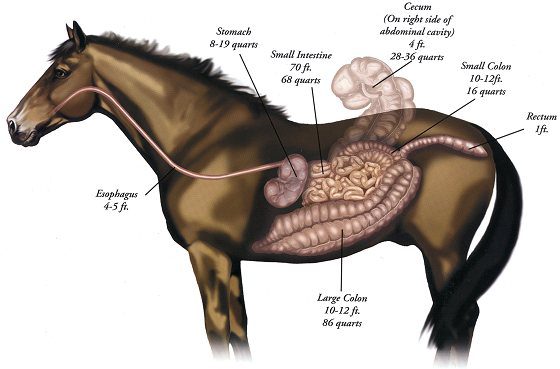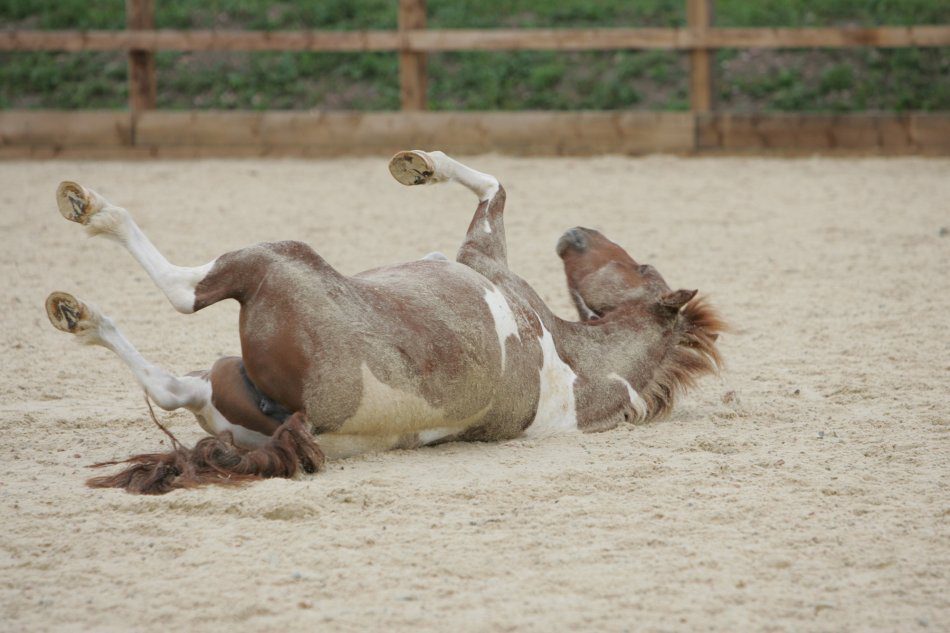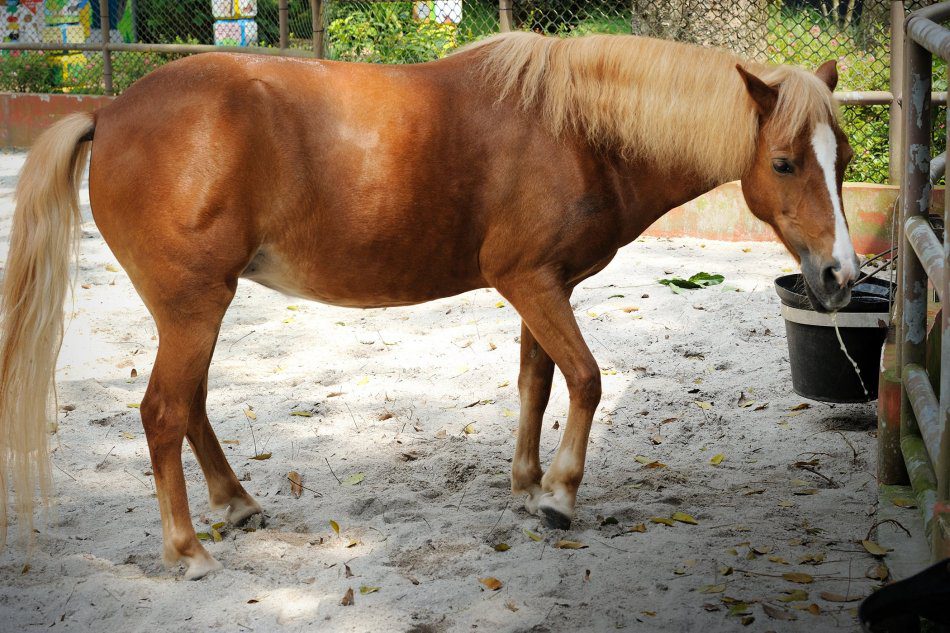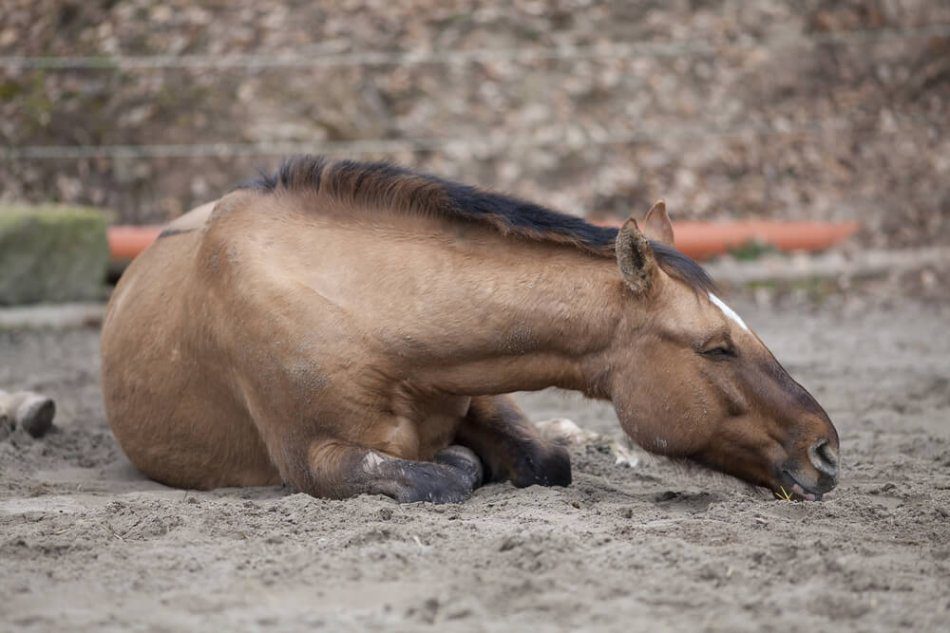
Colic: an internal intestinal blockage in a horse
Internal blockage of the intestines in a horse is a sudden narrowing or complete closure of the intestinal lumen, but not with feed masses, but with a foreign body.
Contents
Causes of intestinal blockage in horses
- Intestinal stones (true or false). True intestinal stones are the result of prolonged feeding of horses with bran (rye or wheat), superimposed on chronic indigestion. Sometimes this is due to a lack of movement or a metabolic disorder. False intestinal stones can be the result of eating sand, wood, earth, hair, etc.
- Calculi – closely intertwined plant fibers, wool or hair.
- Accumulation of sand.
- Roundworms or gadfly larvae that are entwined into a ball.
- Rarely – foreign bodies.
Symptoms of intestinal blockage in a horse
- Anxiety attacks may recur for several months, while the stone moves to the beginning of the small colon, narrowing or closing its lumen.
- Swelling of the blockage site – with complete blockage, and then – secondary acute expansion of the stomach.
- The pulse is weak, rapid.
- Defecation stops – if the intestinal lumen is completely closed. If the closure of the intestinal lumen is incomplete, a small amount of fluid is released, sometimes – fetid feces.
The course and prognosis of internal intestinal blockage in the horse
If the small intestine is clogged, a few hours later, secondary acute expansion of the stomach occurs. The duration of the disease is from 2 to 5 days or more. A possible complication is coprostasis. Small stones and intestinal stones are thrown out along with the feces, and the horse recovers. Sometimes calculi and stones move back into the gastric expansion, and the pain stops.
Treating an internal intestinal blockage in a horse
- First of all, if you notice symptoms of internal intestinal blockage in a horse, contact your veterinarian immediately and follow his recommendations!
- Deep enemas move the stones into the lumen of the gastric expansion of the large colon.
- Probing, gastric lavage – in case of secondary acute expansion.
- The radical method of treatment is surgery.
Prevention of intestinal blockage in the horse
- Feeding horses with quality feed.
- Limiting the amount of bran (or exclusion from the diet).
- Regular feeding and watering.
- Sufficient exercise.






